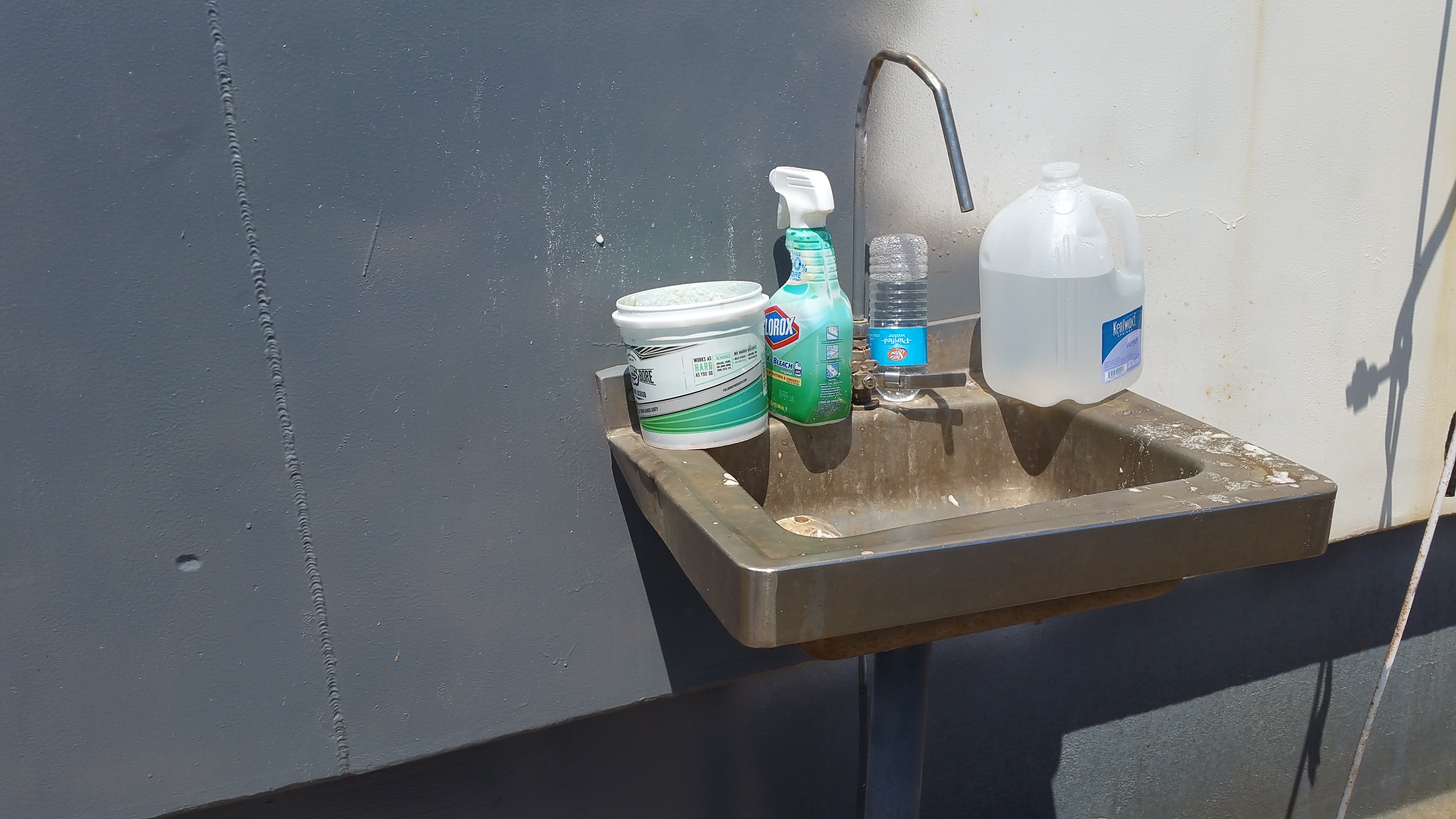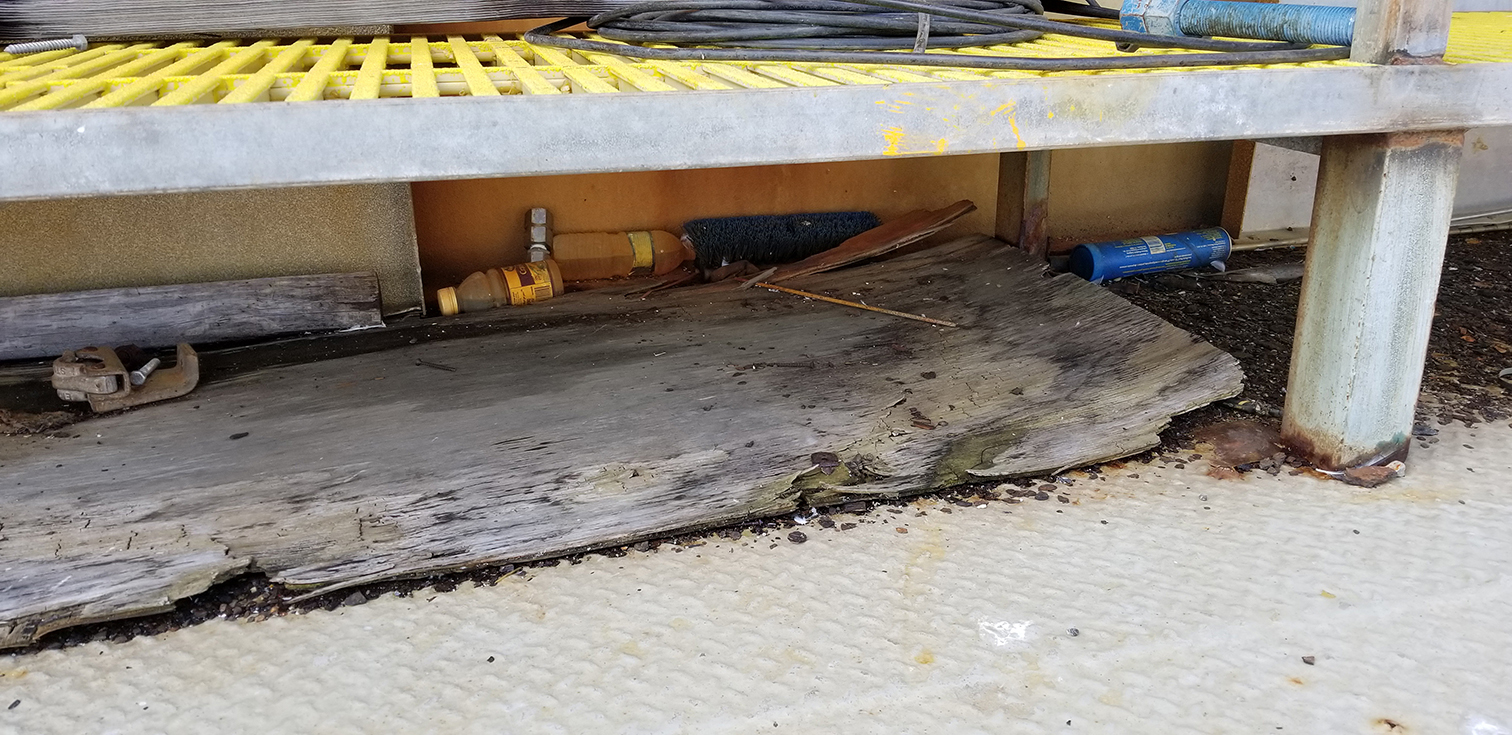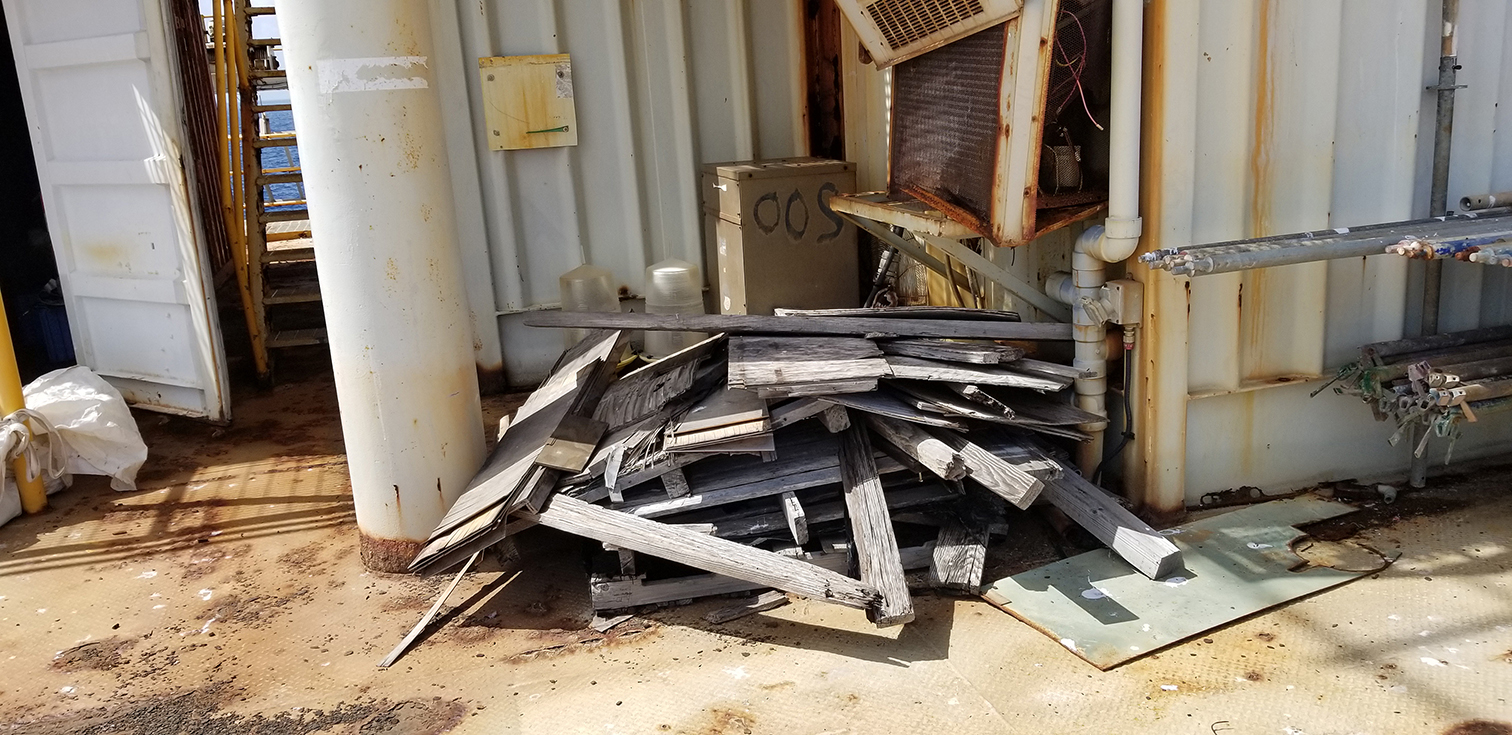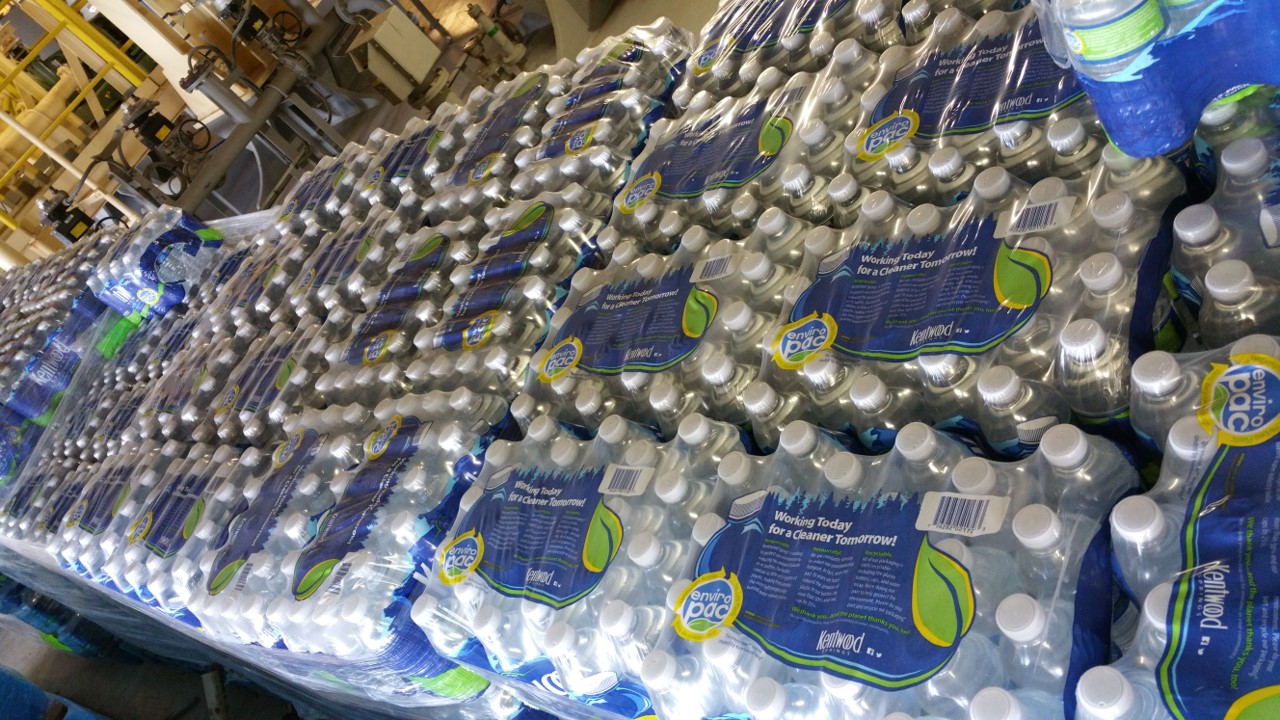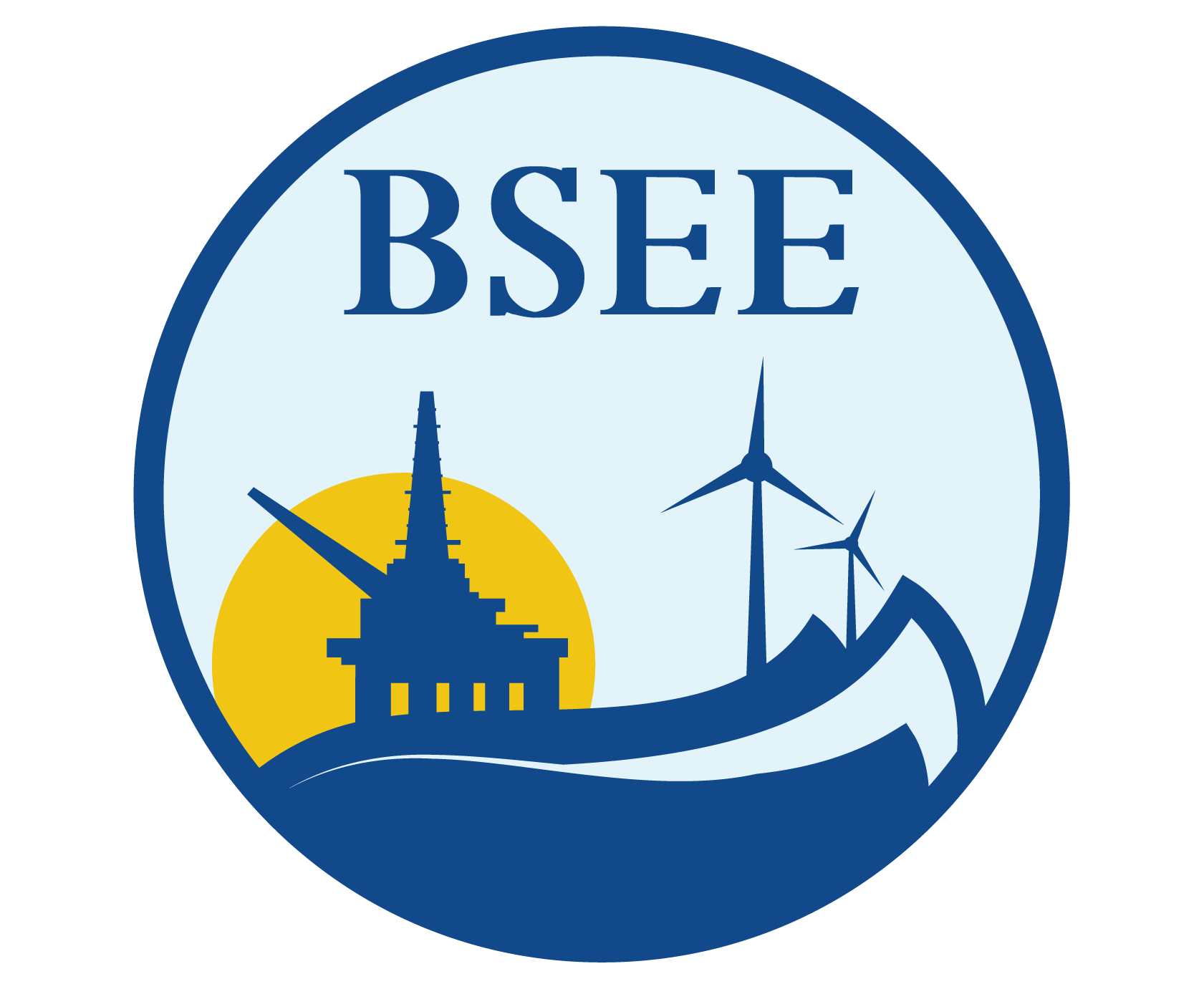The Bureau of Safety and Environmental Enforcement works to promote safety, protect the environment, and conserve resources offshore through vigorous regulatory oversight and enforcement. BSEE protects the environment across nearly 3.2 billion acres of the U.S. Outer Continental Shelf (OCS). One aspect of that protection is our program to reduce the offshore energy industry’s contribution to marine debris.
BSEE enforces marine debris regulations found in Title 30, Code of Federal Regulations §250.300 Pollution Prevention. Supplemental guidance is provided by BSEE’s Notice to Lessees and Operators (NTL) 2015-G03, which clarifies its marine debris regulations for operations in the Gulf of America. BSEE requires offshore energy industry operators to follow best practices to prevent marine debris, including annual training for all offshore workers and annual reporting of training records. Although NTL 2015-G03 applies specifically to oil and gas operations the Gulf of America OCS, BSEE encourages these practices for all regulated activities on the OCS nationwide.
- Download slide pack here: English, Spanish
- OOC Marine Debris page Offshore Operators Committee Marine Debris Webpage
- Keep the Sea Free of Debris - YouTube - English
- Keep the Sea Free of Debris - YouTube - Spanish
- Think About It - YouTube - English
- NOAA Marine Debris Calendar Art Contest
Calendar art can be downloaded by clicking on the above link. The artwork is created by students in kindergarten through 8th grade for an annual contest sponsored by the National Oceanic and Atmospheric Administration’s (NOAA) Marine Debris Program. We encourage you to use these images (especially offshore) for computer “desktop backgrounds”, for screensavers, on phones, etc. It’s some really cool artwork, so we want to share it with everyone for their own use and enjoyment. The idea is to constantly place these concepts before offshore workers to remind them to prevent marine debris. - NOAA Marine Debris Program
The National Oceanic and Atmospheric Administration Marine Debris Program is the United States Government’s lead for addressing the impacts of marine debris on our ocean, waterways, and Great Lakes. We work with organizations around the United States and globally to prevent marine debris from entering the environment, remove it from coastal areas, better understand the problem through research and shoreline monitoring, and respond to debris created by disasters. - Marine Debris (NOAA video)
- Marine Litter Vital Graphics
- Marine Debris Timeline EPA
- Marine Debris from Land and Sea (poster)
- https://www.epa.gov/trash-free-waters
Most of the trash that pollutes our rivers, lakes, estuaries, and oceans comes from sources on land. Plastic trash, in particular, threatens human health, aquatic ecosystems, and the economy. EPA’s Trash Free Waters program is reducing the volume of trash entering our waters by working with partners to implement collaborative solutions that target land-based sources. - EPA. 2020. Advancing Sustainable Materials Management: 2018 Fact Sheet.
In 2020, EPA released the last Advancing Sustainable Materials Management: Facts and Figures Fact Sheet, formerly called Municipal Solid Waste in the United States: Facts and Figures based on 2018 data. It includes information on Municipal Solid Waste generation, recycling, composting, other food management, combustion with energy recovery and landfilling. - https://www.americanchemistry.com/better-policy-regulation/plastics/resources/marine-litter-solutions-the-declaration-of-the-global-plastics-associations-for-solutions-on-marine-litter
Marine litter is human-created waste that has been intentionally or unintentionally discharged into the coastal or marine environment. Marine litter is not only unsightly – it can harm ocean ecosystems, wildlife, and humans. Its effects have prompted governments, private enterprises, environmental groups, and countless citizens to take action. - https://marinedebris.noaa.gov/
The National Oceanic and Atmospheric Administration Marine Debris Program is the United States Government’s lead for addressing the impacts of marine debris on our ocean, waterways, and Great Lakes. We work with organizations around the United States and globally to prevent marine debris from entering the environment, remove it from coastal areas, better understand the problem through research and shoreline monitoring, and respond to debris created by disasters. - Secretariat of the Convention on Biological Diversity and the Scientific and Technical Advisory Panel— GEF (2012).
Impacts of Marine Debris on Biodiversity: Current Status and Potential Solutions, Montreal, Technical Series No. 67, 61 pages. - https://www.unep.org/topics/ocean-seas-and-coasts/regional-seas-programme/land-based-pollution
Sewage and waste water, persistent organic pollutants (including pesticides), heavy metals, oils, nutrients and sediments - whether brought by rivers or discharged directly into coastal waters - take a severe toll on human health and well-being as well as on coastal ecosystems. The result is more carcinogens in seafood, more closed beaches, more red tides, and more beached carcasses of seabirds, fish and even marine mammals.
Connect With Us
Marine Debris Program
For additional information about BSEE’s marine debris program activities please contact marinedebris@bsee.gov
